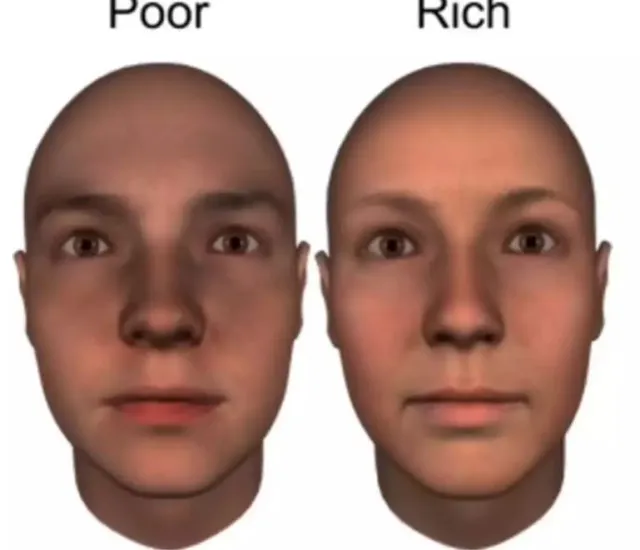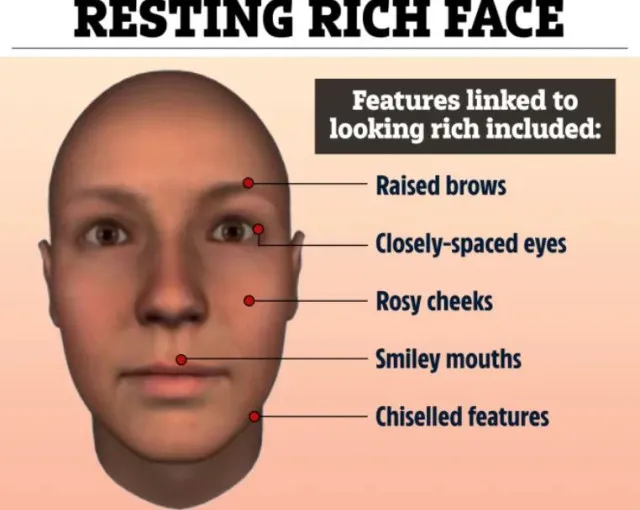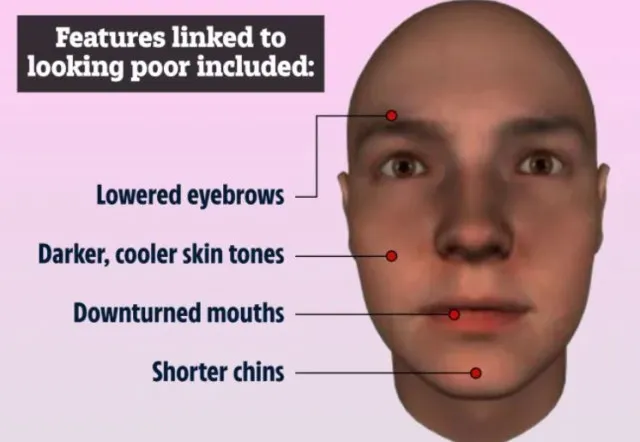Your facial features might reveal whether you appear poor or rich – could you be someone with a ‘resting rich face’ without even realizing it?
A recent study shows how the shape of your face can influence how others perceive your social class.
Facial features linked to social class perception
According to a study by the University of Glasgow, people make quick judgments about social class based on facial features.

The research, published in the APA Journal of Experimental Psychology: General, explores how facial features influence perceptions of wealth.
Study revealed whether you have a resting ‘rich face’ or ‘poor face’
A team from the University’s School of Psychology and Neuroscience led the study.
The goal was to understand what makes someone appear wealthy or poor, and how these perceptions affect judgments of competence, warmth, dominance, and trustworthiness.

Additionally, Participants, all from Western cultures, viewed 3D models of faces and made snap judgments about each person’s social class and personality traits.
The study found that faces perceived as ‘rich’ were often seen as more trustworthy.
While, these faces had defined features, such as chiselled cheekbones, raised eyebrows, and rosy cheeks.
In contrast, faces considered ‘poor’ had traits like lowered eyebrows, shorter chins, and downturned mouths, making them appear cold and untrustworthy.
Dr. Thora Bjornsdottir, the lead author, explained that these appearance-based judgments can have significant consequences.

Additionally, she noted, “People perceived as having higher or lower social class standings are also seen as having certain traits.”
This bias can disadvantage those who are perceived as lower class, affecting their social interactions and opportunities.
How ‘rich’ and ‘poor’ faces differ
Faces deemed ‘poor’ often appeared more ‘infantile’ with rounded features, similar to a child’s face.
On the other hand, ‘rich’ faces were recognized as longer and more defined, with features like protruding noses and high foreheads.
These faces were seen as more dominant, capable, and honest.
The role of facial features in stereotypes

Professor Rachael Jack, an expert in computational social cognition, explained that the study highlights how facial features influence social class stereotypes.
Additionally, she added, “These findings advance our understanding of how facial features shape our perceptions of others.”
She said: “People who are perceived to be of high or low social class are also often judged as having advantageous or unfavourable traits, respectively.
“Such judgements are formed even just from facial appearance, and this can have substantial consequences, including disadvantaging those who are perceived to be of lower social class.
“The stereotypes we hold bias our perceptions.

“Our impressions of other people can lead to particular advantages or disadvantages for them.”
Additionally, the research could also guide future interventions to combat biased perceptions based on appearance.
This study reveals how our perceptions of social class are influenced by facial features.
In short, the findings demonstrate the power of first impressions and how biases can shape interactions in society.